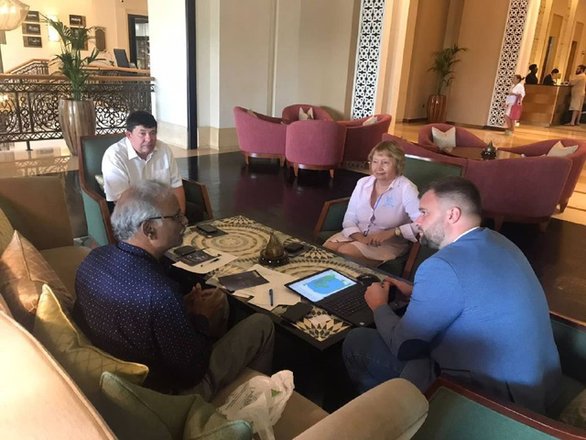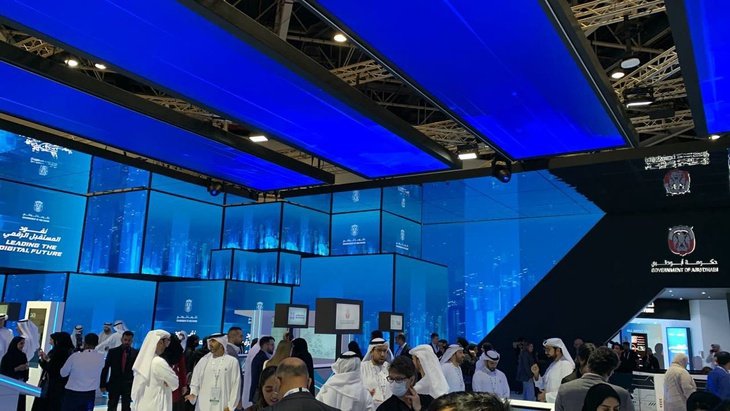“Express” Delivery of Data to the East: RSCC presents the capabilities of its satellites of the Express series at GITEX 2022
At GITEX GLOBAL 2022, RSCC representatives held meetings with a number of telecommunications companies building and using satellite networks in the Middle East, South and Southeast Asia and interested in using the satellite bandwidth.
In particular, RSCC’s satellite services drew attention of the Arab companies Horizonsat, Galaxy Telecom, and the Indian company UMAC.
RSCC satellites are well known among operators of these regions, especially in the Middle East, and are used to build corporate VSAT networks in the interests of oil companies, the banking sector, and government agencies.
This March, a letter of intent was signed between RSCC and the Indian company UMAC, under which the companies expressed their readiness to use the capacity of RSCC spacecraft for the implementation of satellite projects in India, as well as around the world. During the negotiations held at GITEX with the Chief Technology Officer of the satellite division of UMAC, RSCC presented detailed technical parameters of its space constellation, in particular, global beams on the Express-AM7, Express-103, Express-AMU3 satellites. The companies considered the possibility of joint entry into the markets of Malaysia, Thailand and Vietnam.
Moreover, at the meeting, representatives of RSCC and UMAC discussed the problem of 5G and C-band on geostationary satellites and frequency regulation in modern conditions. As a result of the negotiations, agreements were reached on the preparation of joint technical solutions for the implementation of projects in Thailand and Malaysia using the capacity of RSCC satellites and the ground infrastructure of UMAC and its partners in Southeast Asia.
In addition to the traditional search for potential partners for the development of the company's foreign business, GITEX 2022 is a universal platform for RSCC to get acquainted with the latest developments in the telecom industry and their practical application in related sectors.
The main interest is the development trends of 5G networks and the equipment used for these purposes. The 17th edition of the 3GPP global standards released in mid-2022 includes, among other things, a description of non-terrestrial networks (NTN) and considers the role of satellites in the 5G infrastructure. Despite the fact that 5G networks have significantly challenged satellite operators around the world in terms of frequency range used, a satellite still remains the main means of communication in remote regions where terrestrial networks are underdeveloped and allows the organization of a faster and more cost-effective communication than traditional wired types of communication. The full integration of satellites into the 5G ecosystem opens up new market opportunities for satellite solutions and will provide 5G users around the world with the benefits of seamless global connectivity. First of all, this applies to all types of mobile objects, such as ships, aircraft, unmanned aerial vehicles.


